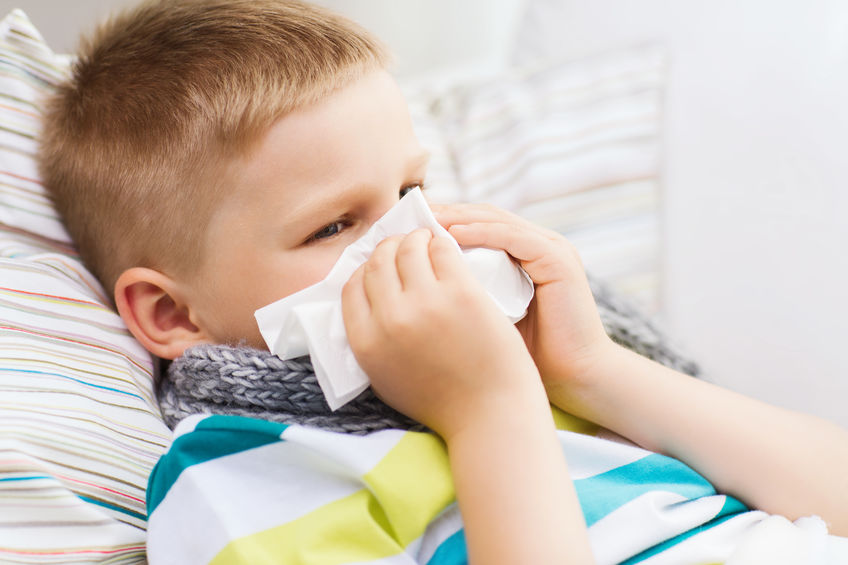Flu season is underway, and with the COVID-19 pandemic still in full swing, we’re entering what’s being called a “twin-demic.”
The flu can cause symptoms ranging from fever to chills to sore throat. While most people get better within 1-2 weeks, thousands of people with the flu develop potentially life-threatening complications, such as pneumonia or a brain infection each year. And every year, the flu leads to between 140,000 and 810,000 hospitalizations, and between 12,000 and 61,000 deaths.
Fortunately, the flu can often be prevented — and the best method is the flu shot.
In 2018-2019, it’s estimated that flu vaccines prevented 4.4 million cases of the flu, 2.3 million flu-associated medical visits, 58,000 flu-associated hospitalizations, and 3,500 flu-associated deaths.
Every year, experts recommend that anyone 6 months of age or older get a flu shot, unless they have a severe, life-threatening allergy to the vaccine. And during this twin-demic, getting a flu shot is even more important than ever before — yet only 1 in 3 parents plan to get their child vaccinated for the flu this year.
There are many myths about flu shots that might make you a little hesitant about getting your child or yourself vaccinated.
Take a look at the truth behind these myths so you can feel confident having your family get flu shots this year:
Myth: The flu shot isn’t effective.
Fact: The effectiveness of the flu vaccine varies every year depending on which of the many different flu viruses are circulating. However, while flu vaccination might not be 100% effective, it is still the single best way to prevent the flu and flu-related complications.

Studies have found that in the US, flu vaccines can reduce:
- Risk of getting the flu by 40 to 60%
- Risk of flu-associated death by more than half in children with underlying, high-risk medical conditions
- Flu-associated hospitalizations by 41% and emergency department visits by 50% in children ages 6 months to 17 years
- Risk of being admitted to the pediatric intensive care unit (PICU) for flu-related illness by 74%.
- Severe symptoms among children who still get the flu
Myth: The flu shot gives you the flu.
Fact: It is impossible for the flu shot to give you the flu. The vaccine is made with an inactivated virus, which means the virus is dead and cannot infect you. It causes your immune system to create antibodies, which are proteins that protect your body from infection.
It is possible that after getting a shot, you can feel like you’re coming down with the flu. There are several explanations for this:
- Symptoms like fever, chills, and muscle aches are potential side effects of the shot, but they are very rare — less than 2% of people who get the shot will have these symptoms. And while they’re certainly uncomfortable, they are generally much tamer than the symptoms from an actual bout with the flu.
- You may have the flu — but it’s not from the shot. Flu shots take up to 2 weeks to be fully effective, which means you can get the flu within that time frame. Since people often get the vaccine during flu season, rather than before, this is not an uncommon scenario.
- You just have a nasty bug. Many flu symptoms, like body aches, fatigue, or fever, are also symptoms of other conditions, such as strep throat, seasonal allergies, or even just a terrible cold.
Listen to the Just Kids podcast episode: “Flu Season 2020”
Myth: My child never gets the flu shot and has always been fine. Since the flu shot doesn’t protect against COVID-19, this year isn’t any different.
Fact: First things first — It’s great that your child hasn’t gotten the flu before, but that doesn’t mean they will never get it.
Second, COVID-19 actually makes this year much different.
Every year, thousands of people are hospitalized due to complications from the flu. In the 2019-2020 flu season, there were more than 52,000 hospitalizations in children under age 18.
As of October 21, 2020, COVID-19 has sent more than 400,000 people in the US to the hospital since March 4, 2020.
Hospitals are currently seeing a surge in inpatients needing round-the-clock care. We need to do everything in our power to keep resources available for all patients, whether they have COVID-19 or not. Preventing the flu, which also means preventing flu-related hospitalizations, is one way we can do that.
Also, both the flu and COVID-19 can wreak havoc on the immune system. Having one of the viruses actually makes you more likely to get the other. If you get them at the same time, you have a higher risk of severe or long-lasting symptoms, or even death.
Myth: I’ve actually heard that fewer people will get the flu this year, so I don’t need to be that worried.
Fact: There is definitely a possibility that there could be fewer cases of the flu this year. The flu is often transmitted via respiratory droplets (including those from a cough, sneeze, or while talking), just like COVID-19.
COVID-19 prevention measures, such as mask-wearing, social distancing, and frequent hand-washing have become commonplace, and these could very well help curb the spread of the flu.
However, that does not mean that you’re in the clear.
The flu is still very contagious. Just like COVID-19, prevention measures can significantly lower the risk of getting the flu, but they are not 100% effective. Everything you can do, whether it’s upping your hand-washing game or spending more time at home, adds a layer of protection — and the flu shot is the best layer we have.
Myth: Flu season already started. It’s too late for the flu shot to be effective.
Fact: The flu can spread year-round, but flu season is generally considered to start up around October, peak between December and February, and last as late as May.
Ideally, you should be vaccinated before the end of October. However, getting it later in the winter, or even in early spring, can still offer some protection. It’s never too late.
Myth: I don’t want to bring my child to a doctor’s office to get the flu shot — they could be exposed to people with COVID-19.
Fact: Doctor’s offices and hospitals are taking every precaution to protect you and your family, from increased sanitizing and disinfecting to social distancing to using telemedicine.
At Children’s, we are taking appointments for flu shots, rather than our usual walk-in clinics, to keep the risk of transmission even lower. We are also scheduling flu shots during “well-visit time,” which allows your child to avoid being exposed to kids who are sick.
If you and your child are getting flu shots at a pharmacy or clinic (not at Children’s), try to go during off-hours to avoid crowds.
On the other end of the spectrum…
Myth: My child got the flu shot, so they’re totally immune.
Fact: Remember, the flu shot isn’t 100% effective. Your child can still get the flu. That’s why it’s so important to continue other prevention measures. The flu virus is known to live on surfaces and spread when you touch that surface and then touch your mouth, nose, or eyes. Make sure that you’re frequently disinfecting high-touch surfaces, like doorknobs and toys.
Also, keep reminding your child about the importance of proper hand-washing. And if anyone in your family has symptoms of the flu, keep them separated from others as much as possible.
The Bottom Line:
The flu shot is the best line of defense against the flu. And as this twin-demic continues, it’s critical to get vaccinated.
What’s Next?
Learn more about the flu vaccination clinics at Children’s Hospital & Medical Center and schedule your child’s appointment.



